Lee Harvey Oswald, the alleged murderer of former American President John F. Kennedy was murdered on this day, November 24, 1963, in the presence of police personnel and members of the media with his killing being captured live by television cameras. The assassination was one of many to be caught on film over the years. Here's a look...
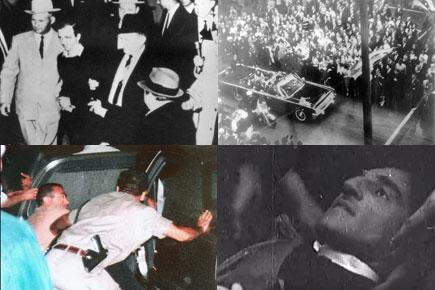
Lee Harvey Oswald, the alleged murderer of former American President John F. Kennedy was murdered on this day, November 24, 1963, in the presence of police perssonel and members of the media with his killing being captured live by television cameras. The assassination was one of many to be caught on film over the years. Here's a look...
ADVERTISEMENT
Lee Harvey Oswald: Former US Marine Lee Harvey Oswald's public and live-televised murder is significant in many ways. It's generally believed to be the first ever murder caught on live American television. Also, Oswald died never having admitted that he was Kennedy's killer.
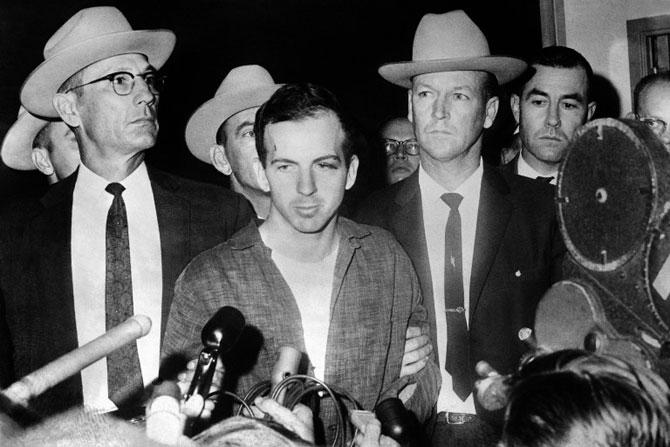
Lee Harvey Oswald during a press conference after his arrest. Pic/AFP
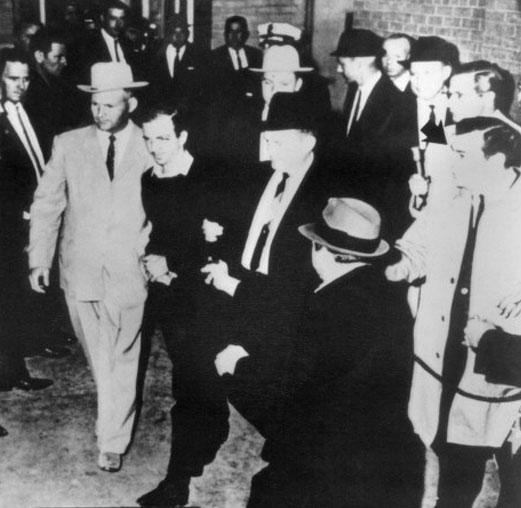
Jack Ruby about to shoot Lee Harvey Oswald. Pic/AFP
Following President John F. Kennedy's murder, Oswald was shot dead in the underground car park of Dallas police headquarters by Jack Rubinstein aka Jack Ruby, 52-year-old owner of a Dallas striptease club. Ruby fired just one shot as the escorting police officers stood as if mesmerized. Oswald slumped forward with a rasping cry of agony and then he was dead. The murder was captured live by news cameras who were covering Presiden John F Kennedy's funeral procession and the graphic event was broadcast on television.
John F. Kennedy: President Kennedy's infamous murder in Dallas, Texas, was captured on film by clothing manufactuerer Abraham Zapruder.

John F. Kennedy
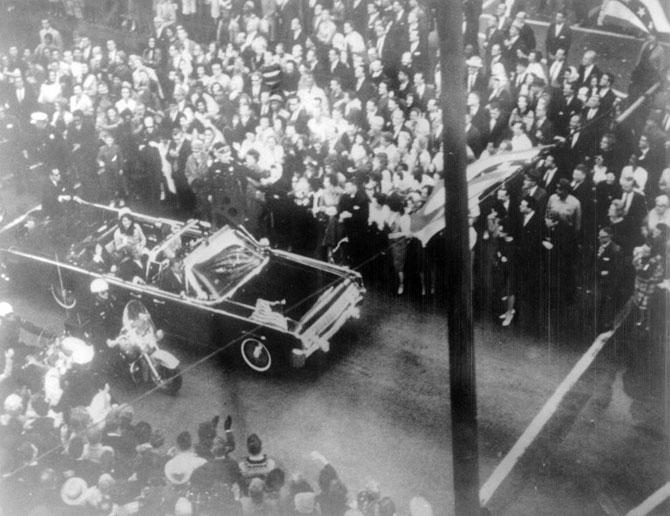
US President John F. Kennedy's motorcade shortly before his assassination. Pic/AFP
The film, which would later go on to gain infamy as the 'Zapruder film', captured the fatal head shot that struck President Kennedy as his limousine passed almost directly in front of Zapruder. He was approached by members of the secret service, who wished to use the film for investigation of the assassination. Zapruder later sold the rights of the video to a major news magazine on the condition that frame 313, showing the fatal shot, would be withheld.
Robert Kennedy: The late Senator Robert Kennedy was also a victim of an assassin's bullet like his famous brother JFK. He was shot by Sirhan Sirhan, a 24-year-old Palestinian on June 5, 1968, after Kennedy defeated Senator Eugene McCarthy in the California presidential primary.
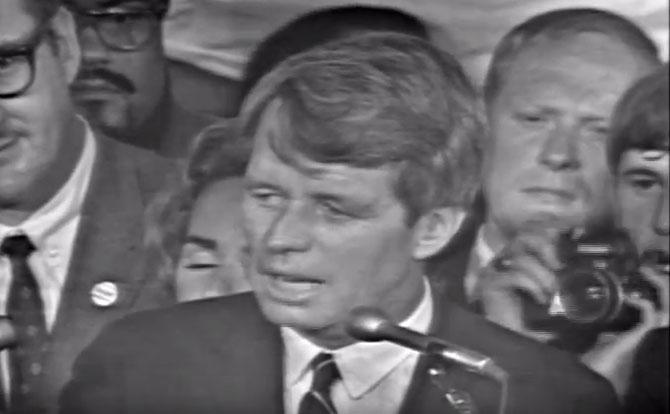
Robert Kennedy before his assassination. Pic/YouTube
He died the following day. The shooting was recorded on audio tape by a freelance newspaper reporter, and the aftermath was captured on film, which was subsequently aired on various news channels. Sirhan Sirhan had opened fire on Kennedy in a crowded kitchen at The Ambassador Hotel in Los Angeles, California, hitting him three times and wounding five others.
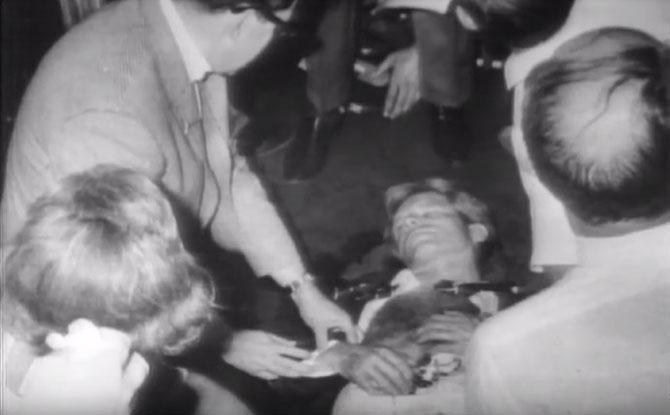
Robert Kennedy after getting shot. Pic/YouTube
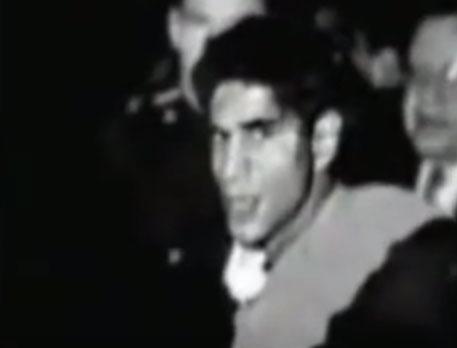
Sirhan Sirhan. Pic/YouTube
Sirhan is currently serving a life sentence. The actual murder was not captured on film as TV news reporters were signing off from electoral broadcast and the coverage of the shooting and its aftermath actually began 21 minutes after the shots were fired. The events following the shooting were captured only by audio recording and cameras that had no live transmission capability. Scant live footage from the kitchen was broadcast in black-and-white by some news channels after Kennedy had been transported from the spot.
Benazir Bhutto: The former Prime Minister of Pakistan, who remains the only female PM till date, was assassinated on Dec 27, 2007 while leaving a campaign rally in Rawalpindi for the PPP at Liaquat National Bagh in the run-up to the January 2008 parliamentary elections.

Benazir Bhutto
Shots were fired at Bhutto when she was standing through her bulletproof vehicle's sunroof to wave at supporters. A suicide bomb was detonated immediately following the shooting. Footage showing the assassin firing three gun shots at Bhutto before the blast and the aftermath was aired on many news channels. Twenty-four other people were killed by the bombing.
Yitzhak Rabin: The former Israeli Prime Minister and 1994 Nobel Peace Prize winner was shot dead on November 4, 1995, by a Jewish Israeli religious extremist named Yigal Amir, who was opposed to peace with the Palestinians.
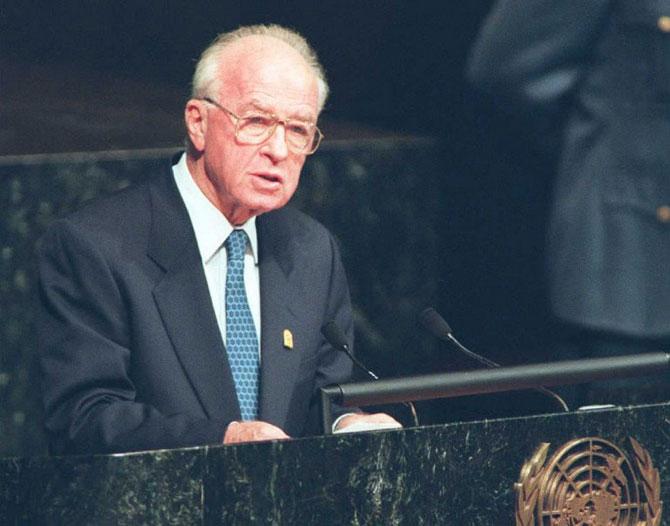
Yitzhak Rabin. Pic/AFP
The assassination took place at a mass rally at the Kings of Israel Square (now Rabin Square) in Tel Aviv. Amir fired three shots at Rabin with a semi-automatic pistol, when the latter walked down the city hall steps towards the open door of his car. Two shots hit Rabin, and the third lightly injured one of his bodyguards. He died on operating table less than 40 minutes later due to blood loss and a punctured lung.
 Israeli security agents push Israeli Premier Yitzhak Rabin into a car after he was mortally wounded by extremist Jewish gunman Yigal Amir (pictured right). Pic/AFP
Israeli security agents push Israeli Premier Yitzhak Rabin into a car after he was mortally wounded by extremist Jewish gunman Yigal Amir (pictured right). Pic/AFP
Amir was tried, found guilty, and sentenced to life imprisonment. The incident was captured by news cameras covering the rally and broadcast worldwide by several media outlets.
Alexander I of Yugoslavia: Alexander I, the first king of the Kingdom of Yugoslavia as well as the last king of the Kingdom of Serbs, Croats and Slovenes was shot to death on October 9, 1934, while travelling through the streets of Marseilles, France. He was accompanied by French Foreign Minister Louis Barthou.
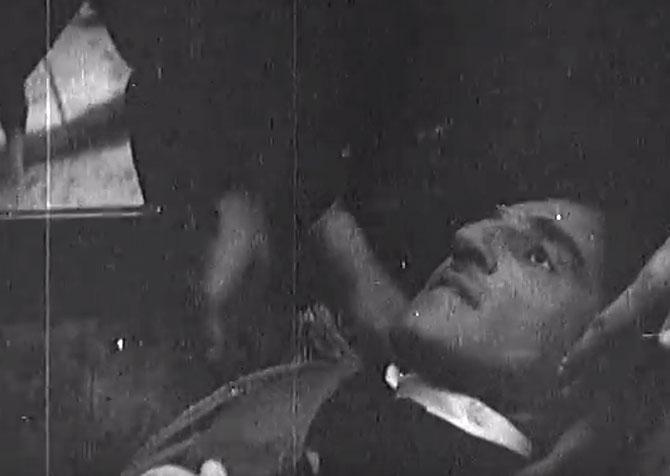
A still from the footage showing Alexander I of Yugoslavia. Pic/YouTube
Alexander I was instantly killed by the bullet, and Barthou was accidentally shot by a French policeman and also died in the attack. The shooter, who was identified as Vlado Chernozemski, was an experienced marksman and Bulgarian member of the Internal Macedonian Revolutionary Organization (IMRO) an organisation reportedly working under the secret sponsorship of Italian dictator Benito Mussolini. The murder of Alexander I was notable for being the one of the first assassinations ever captured on film and remains one of the most notable pieces of newsreel in existence. The cameraman who captured the killing also recorded its aftermath, which involved the assassin Chernozemski getting cut down by the sword of a mounted French policeman, and then beaten to death by the crowd.
Luis Donaldo Colosio: Mexican politician, economist, and PRI presidential candidate, Luis Donaldo Colosio was shot to death on March 23, 1994 at a campaign rally in Tijuana, Baja California, Mexico. His murder was captured by a person who was recording the rally.
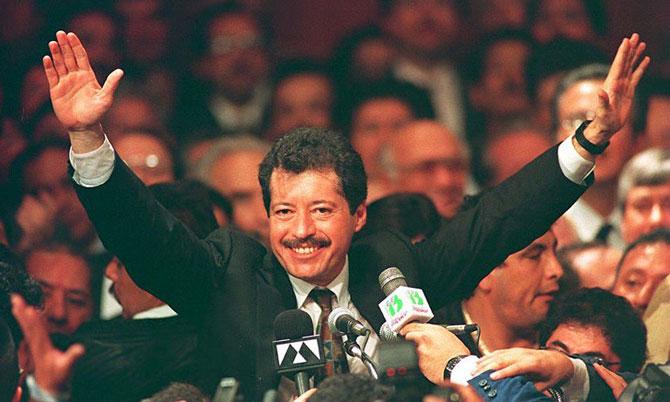
Luis Donaldo Colosio. Pic/AFP
The shooter, Mario Aburto Martínez, was arrested and convicted for the assassination is currently serving a 42-year jail term following his confession that he acted alone. There has been a widespread belief that Colosio's murder and conviction involved a conspiracy and coverup mainly by then president Carlos Salinas de Gortari and cabinet member Manuel Camacho Solís.
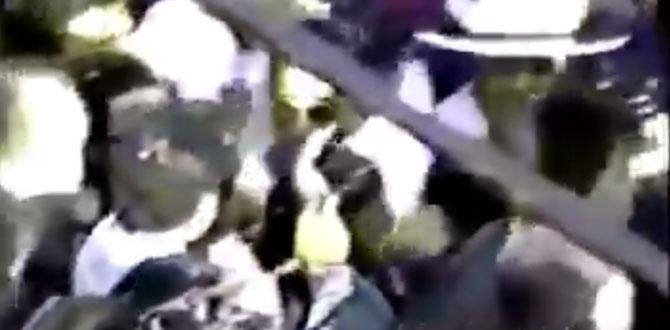
A screengrab from a news report on Colosio's assassination. Pic/YouTube
Colosio received three bullet wounds, and it was never clear if they could have been done by a single person or not. Furthermore, authorities were criticized for their poor handling of Mario Aburto Martínez, having shaved, bathed and given him a prison haircut before showing him to the media, which started rumors about whether that man, who looked so different from the one arrested, was really the murderer.
 Subscribe today by clicking the link and stay updated with the latest news!" Click here!
Subscribe today by clicking the link and stay updated with the latest news!" Click here!







